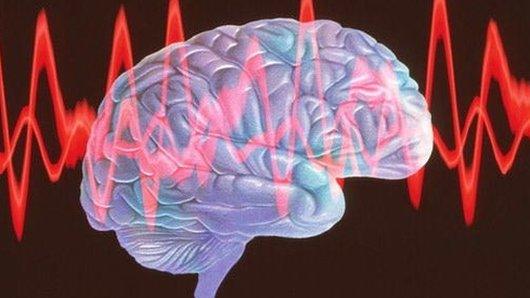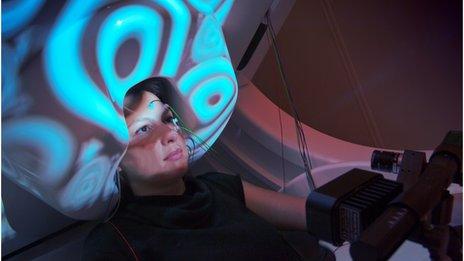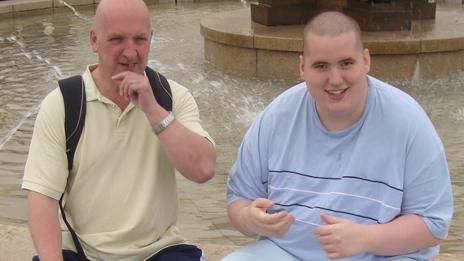UK autism cases have 'levelled off'
- Published

Autism diagnoses have levelled off, a study suggests
The number of new cases of autism being diagnosed in the UK has levelled off, according to researchers.
The study, published in the British Medical Journal, external, said there had been a surge in reported cases in the 1990s, but the rise had not continued.
Increased awareness and diagnosis of condition are thought to have contributed to earlier increases.
The National Autistic Society said the evidence proved the condition had been around for a long time.
Researchers at the Institute of Child Health at University College London looked at GP data which represented 5% of patients in the UK.
They used the information to estimate the number of eight-year-olds with autism each year.
The annual prevalence of autistic spectrum disorders was estimated at 3.8 per 1,000 boys and 0.8 per 1,000 girls. That figure was stable between 2004 and 2010.
The study concluded there was "compelling evidence that a major rise in incidence rates of autism, recorded in general practice, occurred in the decade of the 1990s but reached a plateau shortly after 2000 and has remained steady through 2010".
The researchers said changes in the way autism was diagnosed as well as greater awareness among doctors and the public explained some of the rise although "the actual cause [of the rise in the 90s] remains in large part a mystery".
The study is in contrast to a report by the US Centre for Disease Control, external, which reported a 78% rise between 2002 and 2008.
The last UK Census, which has data from more people than this study but lacks the yearly analysis of diagnoses, suggested the prevalence of autism was closer to one in 100.
Carol Povey, from the National Autistic Society, said: "This study shows that, contrary to media hype, autism has been with us for a long time.
"Evidence suggests that the increase in diagnoses of autism is in large part down to greater awareness of the condition, as well as better diagnostic facilities and improved skills and knowledge among those who carry out diagnoses.
"More than one in 100 people in the UK have autism and it's important that we work to ensure they receive the support they need to reach their full potential."
- Published10 September 2013

- Published9 August 2013

- Published3 October 2013
- Published24 July 2013
